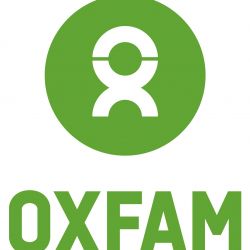Assessments trainer
Terms of Reference
For consultant/firm
Training of Assessment, Data analysis and Narrative reporting
Oxfam is advertising the below consultancy as one of the outputs of Oxfam’s Programme funded by Global Affairs Canada (GAC), to develop capacity strengthening plans for partner staff to improve the capacity of local implementing partners and ensure sustainability. KAFA, in coordination with Oxfam carried out an assessment to ascertain areas of needs and identified areas requiring additional capacity strengthening and development. The below is one of the fields identified from the assessment findings that Oxfam has committed to support.
Background
KAFA (enough) Violence & Exploitation is a Lebanese civil, non-governmental, non-profit, feminist, and secular organization seeking to create a society that is free of social, economic, and legal patriarchal structures that discriminate against women.
KAFA has been aiming to eliminate all forms of gender-based violence and exploitation since its establishment in 2005. It seeks to realize substantive gender equality through the adoption of a combination of different approaches, such as:
- Advocating for law reform and introduction of new laws and policies,
- influencing public opinion, changing the prevailing patriarchal practices, mentalities, and concepts,
- and conducting research and training, and empowering women and children, victims of violence, and providing them with social, legal, and psychological support.
The purpose of this document is to outline the responsibilities, qualifications, and expectations for an Assessment, preparation, Data analysis and Narrative reporting Trainer. The data Trainer will be responsible for conducting training sessions and capacity-building activities related to Assessment, preparation, Data analysis and Narrative reporting practices and principles for KAFA to support it in enhancing its mission.
Introduction:
Provide a brief background of the project, explaining its purpose and importance.
Introduce the organization or entity requesting the assessment and their role in the project.
1.Objectives:
Clearly state the specific goals and outcomes expected from the project. For example, the objectives could be to assess the effectiveness of a specific program, identify areas for improvement, and create a narrative report for stakeholders.
2.Scope of Work:
Define the boundaries of the project, including the specific aspects to be covered and any limitations or exclusions.
Specify the geographic area, time frame, and target population, if applicable.
3.Methodology:
Describe the approach to be used for conducting the assessment, data analysis, and narrative reporting.
Explain the rationale behind the chosen methodology and why it is suitable for achieving the project objectives.
4.Data Collection:
Identify the data sources to be used, such as surveys, interviews, existing reports, or databases.
Outline the data collection tools and instruments that will be utilized, including any questionnaires or interview guides.
5.Data Analysis:
Describe the data analysis techniques that will be employed to interpret the collected data.
Mention any statistical software or tools that will be used for data analysis.
6.Reporting:
Explain the structure and format of the narrative report that will be created.
Specify the key sections to be included in the report, such as an executive summary, methodology, findings, conclusions, and recommendations.
7.Timeline:
Provide a detailed timeline with key milestones and deadlines for each phase of the project, including data collection, analysis, and reporting.
8.Team Members:
Identify the team members involved in the project and their respective roles and responsibilities.
Mention any external consultants or experts who will be contributing to the project.
9.Budget:
If applicable, include the estimated budget for the project, breaking down the expenses for data collection, analysis, and reporting.
Duration and Location
The contract for the Trainer will be for 8 days in the month of December 2023. The training sessions and support activities will take place at Kafa Office in Bekaa.
Reporting:
The Trainer will provide a brief progress report after each training day, summarizing topics covered, participants' engagement, challenges encountered, and any notable observations including pre/post tests analysis.
Payment and Remuneration
The payment and remuneration details will be agreed upon and specified in the contract.
Confidentiality
The Trainer shall treat all information or data obtained during the assignment as confidential and shall not disclose or share information or data to any third party without prior written consent.
Amendment
These Terms of Reference may be amended by mutual agreement between the MEAL Trainer and the organization, provided that such amendments are documented in writing and duly signed by both parties.
Submission of quotations and Questions
Submission of quotations and any requests for clarification may be submitted by email to [email protected]
How to apply
Submission of quotations and Questions
Submission of quotations and any requests for clarification may be submitted by email to [email protected]
منتهية الصلاحية
